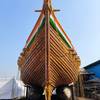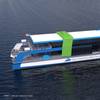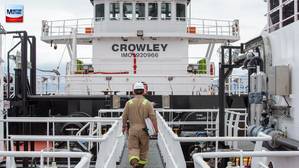Plans to safeguard Panama Canal operations from Y2K-related disruption are highly advanced, the waterway's administration said last week. The Panama Canal Commission (PCC) has implemented a five-phase U.S. federal government plan since 1996, to ensure that all date-sensitive computers and software applications are prepared for year-end glitches, Francisco Loaiza, Chief Information Officer at the PCC said.
Following an inventory of computers, servers, information systems and "embedded equipment" - machinery like fax machines and VHS recorders that contain a microprocessor - all necessary network upgrades and replacements have been made, Loaiza said.
All Canal administration PC networks have been tested, and validated systems have been put back into operation. The PCC's corporate and departmental systems are 98 percent compliant.
"That 98 percent takes into account everything that is crucial to the operation," Loaiza said, adding that all systems will be 100 percent Y2K compliant by the end of November.
The existing canal traffic control system is set for transfer to the Y2K compliant Enhanced Vessel Tracking Management System (EVTMS) - which provides real-time information on all vessels in Canal waters - between Nov. 27 and 30.
In addition to an internal audit of all administration systems, the Information Management Department carried out checks to ensure that key PCC "providers" in the banking and telecoms sectors, as well as fuel suppliers, are Y2K compliant.
"We have been into their installations and we are satisfied," Loaiza said.
Checking Y2K compliance among working partners also extends to the waterway's users, as failure of shipboard computer systems could cause accidents and traffic control delays.
The PCC sent two advisories to ship operators earlier this year, stating that vessels transiting the canal on critical dates - Jan. 1 and Feb. 29, 2000 - would be required to demonstrate that key shipboard systems such as steering gear, main engines and power plant are Y2K compliant.
If a vessel is unable to update its technology, vessel movement controls, such as tug escorts, could be imposed at cost to the user, Capt. Miguel Rodriguez, Chairman of the Board of Local Inspectors Maritime Operations Department, said.
"We will determine the risk that the vessel poses, and then decide whether to allow it to transit on critical dates, or whether to impose restrictions," Rodriguez added.
Changes to vessel transit scheduling are planned to minimize potential risk. Usually prepared 24 hours in advance, year's end scheduling will be carried out in the week leading up to Dec. 31, to allow time to draw up a list of suitable vessels.
Scheduling criteria for vessels making critical-date transits will include past safety records and responses to a Y2K compliance questionnaire, sent out to 6,000 ship operators during the year, Rodriguez said.
Most ships run on GMT, extending the critical period for Canal operations from 1900 EST (2400 GMT) to 2400 EST (0500 GMT), Rodriguez said. Available tug numbers would be increased to 22 from 17 for the period, as part of administration-wide contingency plans. - (Tim Gaynor, Reuters)
April 2025
 Read the Magazine
Read the Magazine

 Read the Magazine
Read the Magazine
This issue sponsored by:

Modernizing Mariner Credentialing: A Maritime Workforce Imperative
Subscribe for
Maritime Reporter E-News
Maritime Reporter E-News is the maritime industry's largest circulation and most authoritative ENews Service, delivered to your Email five times per week












